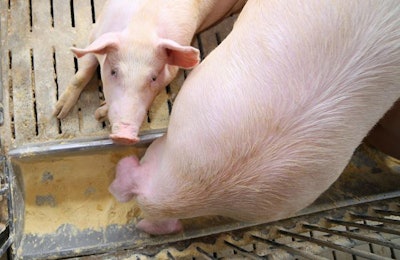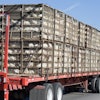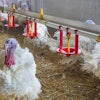
In the past two weeks, outbreaks of African swine fever (ASF) have been officially reported in domestic swine in China and Moldova, and in wild boar in Belgium, Latvia and Ukraine.
Since 2016, a pattern of significant increase in the amounts of outbreaks was identified, according to the World Organization for Animal Health (OIE). ASF has never been reported in the Americas or Oceania, but the OIE highlights the presence of the disease in Africa and Europe. The first reports of ASF in Asia came in August 2018, with outbreaks confirmed in China.
ASF outbreaks in Chinese domestic pigs
Since the disease was first reported in China in August, ASF has been confirmed in several provinces across the country.
Within the past two weeks, one outbreak has been confirmed at a farm in the northeastern province of Heilongjiang, affecting the largest pig herd in that region so far, and leading to the direct loss of 73,654 animals through mortality and culling. This in the sixth outbreak in the province since the disease was first confirmed there in early September, and brings the total direct loss (through mortality and culling) to more than 75,000 animals.
An ASF outbreak in Shanxi in central China at the end of December brought the total in that province to five since mid-October. It also adds a further 8,000 to the loss of livestock, which now exceeds 37,000.
After three outbreaks in backyard herds since mid-October, ASF was confirmed at the first farm in Guizhou province in south-central China in mid-December. More than 400 pigs have been lost as a direct result of these outbreaks.
Early November saw the first ASF outbreak confirmed in Fujian province in the southeast of the country, and a further two outbreaks on farms during December brings the total there to three. The latest outbreak was at a farm in the region of Nanping, and resulted in the death or destruction of 5,776 pigs. These brought the losses in the province to more than 22,000.
Fujian is the nearest province of the People’s Republic to Taiwan. A pig carcass recently found on a beach in Taiwan has tested positive for the ASF virus, reports Taiwan News. Although the origin of the animal has not been identified, its discovery has raised alarm in Taiwan over the threat of the disease to its pork industry.
China’s agriculture ministry reported to the OIE that the province most recently affected by ASF for the first time is Guangzhou in the southeast of the country. Since mid-December, the disease has been confirmed at three locations. Two of these were backyard animals, but the third was at a farm in Guangzhou with more than 6,000 pigs.
Situation in central and eastern Europe
In its most recent report to the OIE, Latvia’s animal health agency has confirmed ASF in 26 wild boar at 23 locations across the country between December 17 and 28.
There has been just one outbreak of ASF in the Republic of Moldova in recent weeks, according to the official OIE report. This affected a small backyard herd of four animals in the southern district of Cahul.
Poland’s agriculture ministry has reported to the OIE that the ASF virus had been detected in 16 wild boar found dead at eight locations in the north-eastern province of Warmia-Masuri during the first week of December.
A total of six wild boar tested positive for ASF in Ukraine in mid-December, according to the latest reports from the State Service for Food Safety and Consumer Protection to the OIE. Five of the animals were killed in Zhytomyr oblast in the north of the country, and the other was in Zarpattia in the southwest.
Two official reports from the agriculture ministry indicate that the ASF situation has been “resolved” in the wild boar populations of Leningrad oblast and Kaliningrad.
ASF confined to wild boar in Belgium
Belgium is the only western European country to have reported ASF. The first cases testing positive for the virus were wild boar in forests in the southernmost province of the country, Luxembourg, which borders France. According to reports from the Federal Agency for Safety in the Food Chain to the OIE, a total of 287 animals have tested positive for the virus since early September, all of which were wild boar from the same province.
ASF was last detected in Belgium in 1985, and the source of the current infection is unknown. The threat of the infection spreading to Belgian pig farms was described in November as “low” by the Belgian Food Safety Agency. This is because of the “sanitary slaughter carried out in the pig farms in the infected zone.”
View our continuing coverage of the African swine fever outbreak.

















